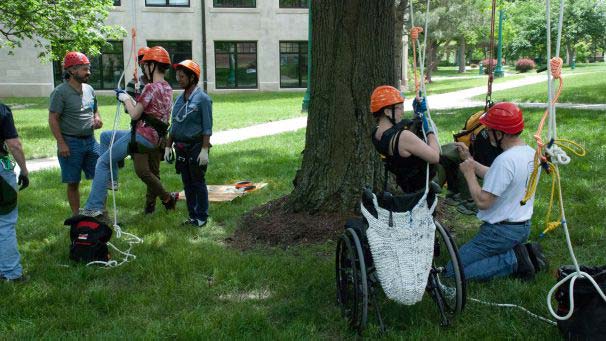Apr 13, 2015 | Awards, News
National Science Foundation awards Baker grant

Baldwin City, Kansas — William Miller, director of research in biology, and Baker University have been awarded a National Science Foundation grant for $286,285 over three years to conduct the “Tardigrades and Wheel Chairs in the Canopy” Research Experience for Undergraduates program.
In collaboration with Meg Lowman of the California Academy of Sciences, Baker will offer students nationwide with or without ambulatory disabilities the opportunity to explore the canopy of Kansas and search for microscopic water bears.
“The REU program is one of the most prestigious offered by the National Science Foundation,” Miller said. “Only 1,200 students from more than 40,000 applications are selected each year. The objective is to provide true research experiences for undergraduates. Baker is the smallest school offering original research and ours is the only program to provide opportunity for students in wheel chairs to conduct field biology.”
During the last two years, in the pilot for this program, Miller’s team has written and published eight peer reviewed scientific papers, discovered and described three species new to science, established new records for Kansas and North America, identified new arboreal ecology for tardigrades and suggested new distribution patterns. The team has ascended more than 250 Kansas trees to heights greater than 75 feet, collected 1,400 samples and extracted more than 12,000 tardigrades. The team has presented their work at regional, meetings and national conferences and this summer will present on the international stage. The students have walked in the ruts of the Santa Fe Trail and strolled among the giant redwoods in the footprints of John Muir.
The new three-year program will host eight students each summer who will work from the new ecology lab in the Boyd Science Center to study and collect tardigrades at the Baker Wetlands, the KU Field Station, and the KSU Konza Prairie. They also will visit alternative forest types in Florida, Massachusetts and Oregon. The team will complete the summer with a public outreach presentation on the main floor of the California Academy of Science in San Francisco.
